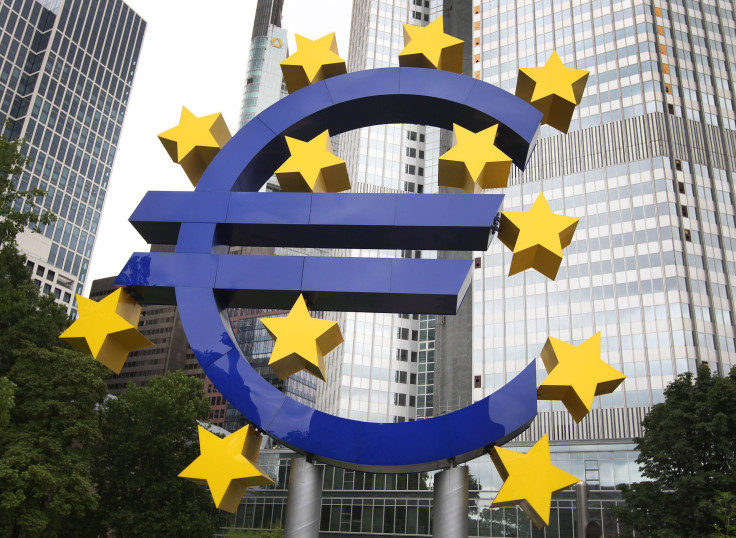Eurozone Growth Forecast Mixed As 'Temporary Tailwinds' Likely To Fade

Low oil prices and a weak euro are likely to boost growth in the 19-nation eurozone this year, the European Commission said Thursday, in its autumn 2015 economic forecast. However, the positive impact of these factors would start fading next year, when growth is expected to slow and fall below projections.
“Growth [in the euro area] is largely backed by temporary factors such as low oil prices, a weaker euro exchange rate and the ECB's accommodative monetary policy,” European Commission Vice President Valdis Dombrovskis said, in a statement. “Sustaining and strengthening the recovery requires taking advantage of these temporary tailwinds to pursue responsible public finances, boost investment and carry out structural reforms to enhance competitiveness.”
According to the commission’s forecasts, the eurozone is expected to grow by 1.6 percent this year, up from the previous estimate in May of 1.5 percent. However, for 2016, the commission slightly trimmed its growth forecast -- to 1.8 percent from a previous estimate of 1.9 percent. A weak and uncertain global economy is likely to weigh on growth over the next few years.
The forecast also includes an assessment of the debt-riddled Greek economy. The country is now expected to be in recession this year and the next, before growing at 2.7 percent in 2017. The commission’s previous forecasts had expected Greece to grow 0.5 percent in 2015 and 2.9 percent in 2016.
The economic recovery in the bloc is resting on an unprecedented 1.1 trillion euro ($1.2 trillion) European Central Bank (ECB) stimulus. And though its bond purchase program is slated to run at least through September 2016, the central bank has, in recent weeks, come under increasing pressure to expand the program to push up sluggish inflation, and is likely to announce further stimulus measures in December.
A widespread slowdown in emerging markets, coupled with falling oil prices, has raised concerns that the 2 percent inflation target set by the ECB might very well be impossible to achieve. The Commission lowered its inflation outlook for 2016 to 1 percent for the eurozone -- from a previous estimate of 1.5 percent.
Currently, though, inflation in the region stands at zero, having recovered from a brief deflationary spell in September.
The commission also addressed the burgeoning refugee crisis in Europe, and said the overall impact of the massive influx of refugees is likely to be positive, as additional government spending boosts demand.
“While in the short run, additional public expenditure increases GDP, an additional positive impact on growth is expected in the medium term from the increase in labour supply, provided the right policies are in place to facilitate access to the labour market,” the commission said, in the statement. “For the EU as a whole, the growth impact is small, but it can be more sizeable in some Member States.”
© Copyright IBTimes 2024. All rights reserved.





















